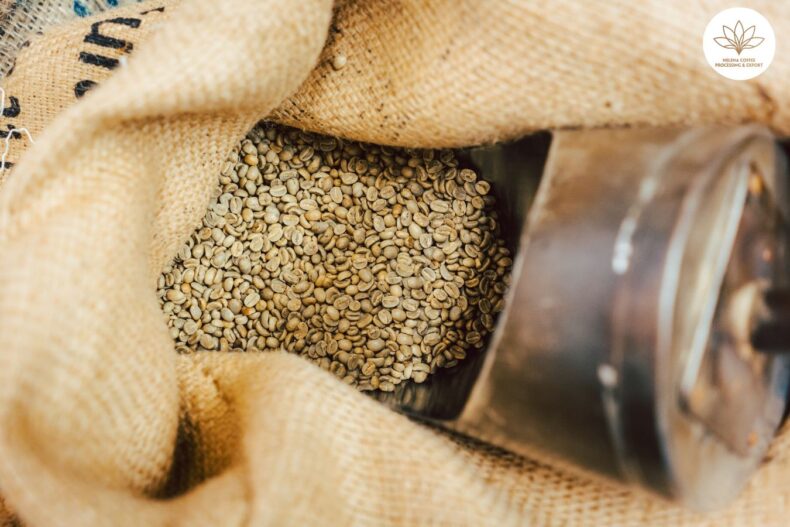
Does drinking coffee affect the liver? Drinking coffee helps you stay awake when needed and can prevent several diseases if used correctly. But many people with liver disease often worry that the use of coffee will affect the functioning of the liver. So the truth: “Is drinking coffee with milk harmful to the liver?” let’s find out!
1. The benefits and risks of drinking coffee
1.1. Benefit (coffee consumption)
In coffee, many substances are beneficial to our health. If used correctly and not abused, this product can bring many health benefits such as:
- Provides more beneficial minerals such as vitamins B12, B5, B3, manganese, potassium, and magnesium…
- Improves brain function and helps maintain alertness. Coffee helps reduce fatigue and attentiveness and increases energy for work because the chemical compounds in coffee prevent the brain from producing neurotransmitters.
- Reduce excess body fat, and help maintain a reasonable weight thanks to a few substances in coffee.
- Reduce the risk of diabetes when using coffee properly.
- Reducing the risk of diseases related to neurodegenerative diseases such as Alzheimer’s disease and Parkinson’s disease.
- Coffee consumption reduces the risk of depression by about 20% compared with non-users.
- The liver is an organ with hundreds of different functions. This organ is vulnerable to damage for many reasons; if you use coffee every day can prevent the risk of harming the liver.
1.2. Risk (health)
Coffee has a lot of beneficial effects on health if we use it properly. However, if misused, abuse is also harmful to the body. Some of the side effects of coffee abuse may include:
- Harmful to children, if often used to keep themselves awake, there is a risk of causing abnormalities in their development. You may experience dizziness, nervousness, drowsiness, heart palpitations, vomiting, fainting…
- Caffeine can cause insomnia: Caffeine in the body will stimulate the nerves, making us feel awake and difficult to sleep. So do not drink coffee before going to bed, especially for those who have experienced insomnia.
- Headaches: If you drink a moderate amount of coffee regularly and regularly, caffeine can help relieve headaches. Abuse of this substance can cause headaches and lead to migraines.
- Allergy to caffeine: Some people are sensitive to caffeine or other substances in coffee, which can cause an allergic reaction such as a skin rash.
- Causes chest pain: After drinking a lot of coffee, the heart contracts more strongly. When the heart contracts strongly, it can make you feel chest pain, affecting your health.

Drinking coffee affects the liver and is not a question of many users today.
Disorders of bone growth: Caffeine interferes with bone growth and increases the risk of fractures. This effect is dose-dependent; the more coffee you drink, the higher the risk. In particular, bone development disorders affect the child’s later growth in height and physique at school age.
In addition, worrying is that we are at risk of drinking fake and unsafe coffee. Using these types of coffee will help you get the benefits of coffee and face the consequences caused by the industrial production process. Some ingredients can be harmful such as colorants, thickeners, bitter flavoring agents, sweeteners, foaming agents…
2. Does drinking coffee affect the liver?
Drinking coffee is bad for the liver is not a question many people wonder about. Drinking coffee properly does not affect the liver but also benefits this part.
Coffee is classified as one of the good foods for the liver. According to researchers, people who regularly drink coffee have a lower risk of HCC.

Coffee contains many substances with antioxidant effects, so this may also be a reason that drinking coffee helps prevent liver cancer and liver disease. The liver is often the organ most affected by oxidants, causing liver disease.
In addition, young people tend to love milk coffee. So is drinking coffee with milk harmful to the liver? If it is real coffee, it can promote its effects in any form; even decaffeinated coffee has a protective effect on the liver.
3. Notes when drinking coffee
To use coffee properly, we need to note a few things:
- Should use pure coffee; avoid using coffee of unknown origin.
- Do not add sugar when drinking coffee because adding sugar can increase the risk of other diseases.
- Drink only one drink per day and a maximum of 2 drinks per day.
- Drinking coffee after meals, and drinking before meals can cause symptoms such as irritability, and dizziness…
- People with tachycardia, caffeine allergy, and high blood pressure… should not drink coffee.
If used correctly and in moderation, it will be beneficial for health and good for the liver. However, if you abuse this substance, it will increase the risk of causing adverse health effects.
However, you should limit drinking coffee with a lot of milk because too sweet substances can cause many harmful effects on health.
Keywords: liver disease progression, Pubmed google scholar, article Pubmed google, cas article Pubmed, article google scholar, incident chronic liver, chronic liver disease, liver disease study, developing liver disease, fatty liver disease, effects on the liver, coffee drinking


